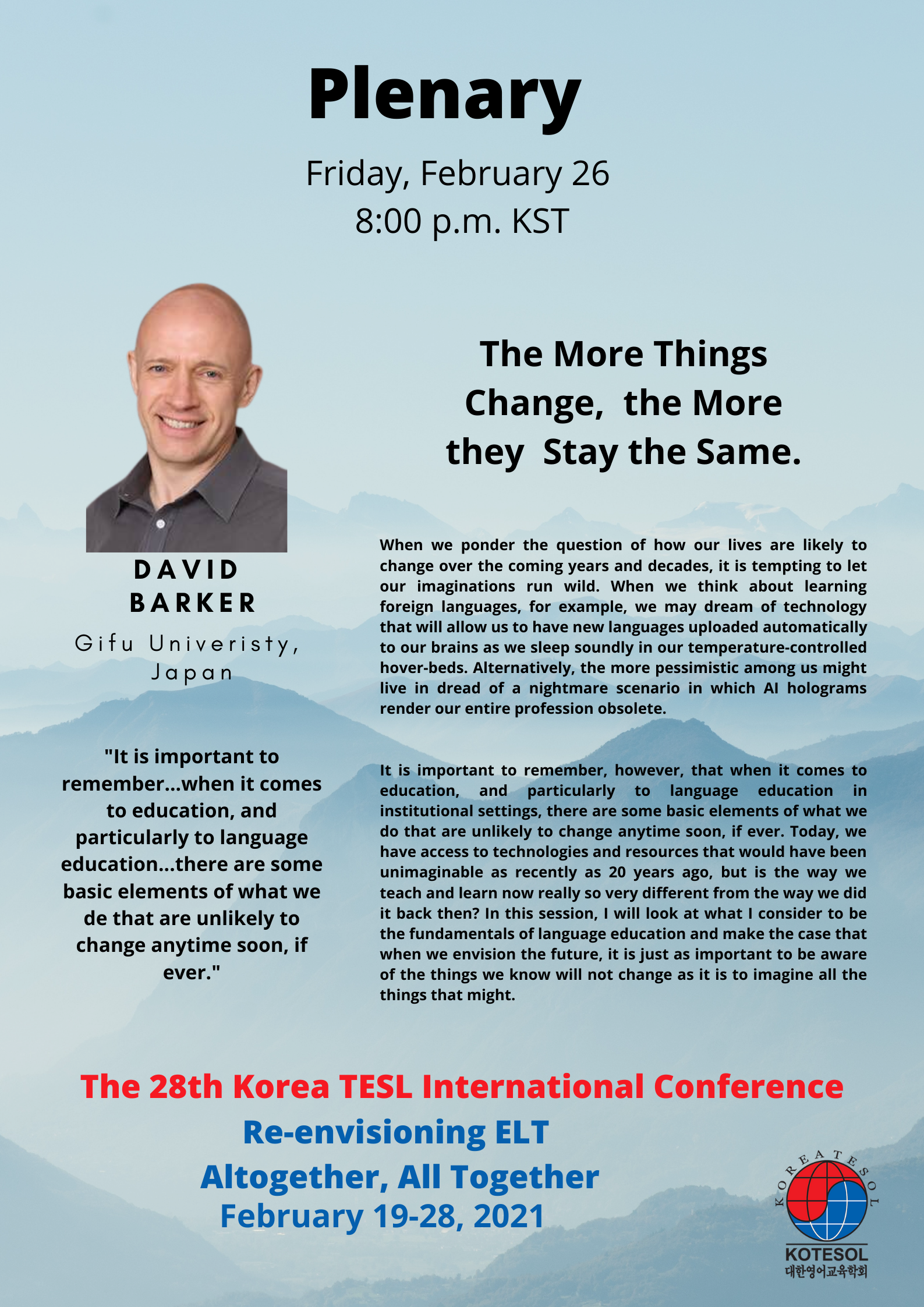Sessions /
The More Things Change, the More they Stay the Same.
#1078
When we ponder the question of how our lives are likely to change over the coming years and decades, it is tempting to let our imaginations run wild. When we think about learning foreign languages, for example, we may dream of technology that will allow us to have new languages uploaded automatically to our brains as we sleep soundly in our temperature-controlled hover-beds. Alternatively, the more pessimistic among us might live in dread of a nightmare scenario in which AI holograms render our entire profession obsolete.
It is important to remember, however, that when it comes to education, and particularly to language education in institutional settings, there are some basic elements of what we do that are unlikely to change anytime soon, if ever. Today, we have access to technologies and resources that would have been unimaginable as recently as 20 years ago, but is the way we teach and learn now really so very different from the way we did it back then? In this session, I will look at what I consider to be the fundamentals of language education and make the case that when we envision the future, it is just as important to be aware of the things we know will not change as it is to imagine all the things that might.
David Barker is the director of the English Center at Gifu University in Japan. Originally from Wales, he became a language teacher after working for two years as a police officer in Liverpool, England. He has a PhD in language education and has taught English in Singapore, New Zealand, and Japan, where he has lived for 23 years. He is the founder of BTB Press and the author of a wide range of bilingual textbooks. He is also the author of four Japanese language books about learning English, two of which became national bestsellers. His main areas of interest are cross-linguistic interference and materials development.
Presentation Assets

